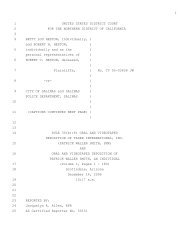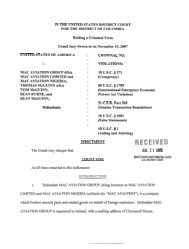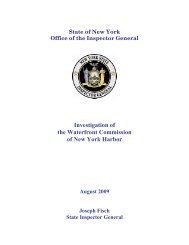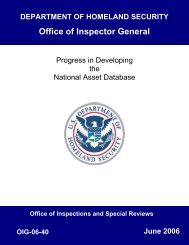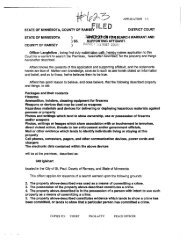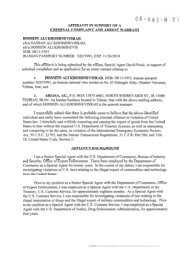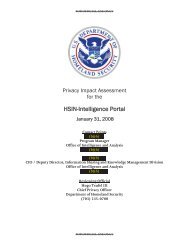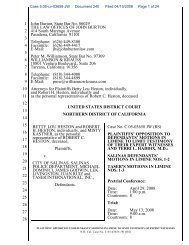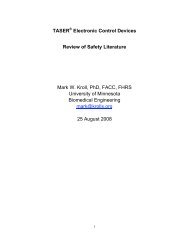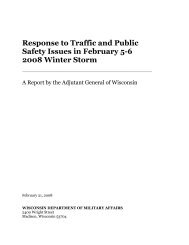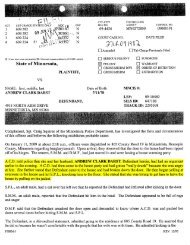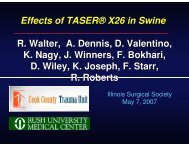04-473 - Garcetti v. Ceballos - Supreme Court of the United States
04-473 - Garcetti v. Ceballos - Supreme Court of the United States
04-473 - Garcetti v. Ceballos - Supreme Court of the United States
You also want an ePaper? Increase the reach of your titles
YUMPU automatically turns print PDFs into web optimized ePapers that Google loves.
Cite as: 547 U. S. ____ (2006) 1SOUTER, J., dissentingSUPREME COURT OF THE UNITED STATES_________________No. <strong>04</strong>–<strong>473</strong>_________________GIL GARCETTI, ET AL., PETITIONERS v. RICHARD CEBALLOS ON WRIT OF CERTIORARI TO THE UNITED STATES COURT OF APPEALS FOR THE NINTH CIRCUIT[May 30, 2006] JUSTICE SOUTER, with whom JUSTICE STEVENS andJUSTICE GINSBURG join, dissenting.The <strong>Court</strong> holds that “when public employees makestatements pursuant to <strong>the</strong>ir <strong>of</strong>ficial duties, <strong>the</strong> employeesare not speaking as citizens for First Amendment purposes,and <strong>the</strong> Constitution does not insulate <strong>the</strong>ir communicationsfrom employer discipline.” Ante, at 9. Irespectfully dissent. I agree with <strong>the</strong> majority that agovernment employer has substantial interests in effectuatingits chosen policy and objectives, and in demandingcompetence, honesty, and judgment from employees whospeak for it in doing <strong>the</strong>ir work. But I would hold thatprivate and public interests in addressing <strong>of</strong>ficial wrongdoingand threats to health and safety can outweigh <strong>the</strong> government’sstake in <strong>the</strong> efficient implementation <strong>of</strong> policy,and when <strong>the</strong>y do public employees who speak on <strong>the</strong>sematters in <strong>the</strong> course <strong>of</strong> <strong>the</strong>ir duties should be eligible toclaim First Amendment protection.IOpen speech by a private citizen on a matter <strong>of</strong> publicimportance lies at <strong>the</strong> heart <strong>of</strong> expression subject to protectionby <strong>the</strong> First Amendment. See, e.g., Schenck v. Pro-Choice Network <strong>of</strong> Western N. Y., 519 U. S. 357, 377 (1997).At <strong>the</strong> o<strong>the</strong>r extreme, a statement by a government em-



